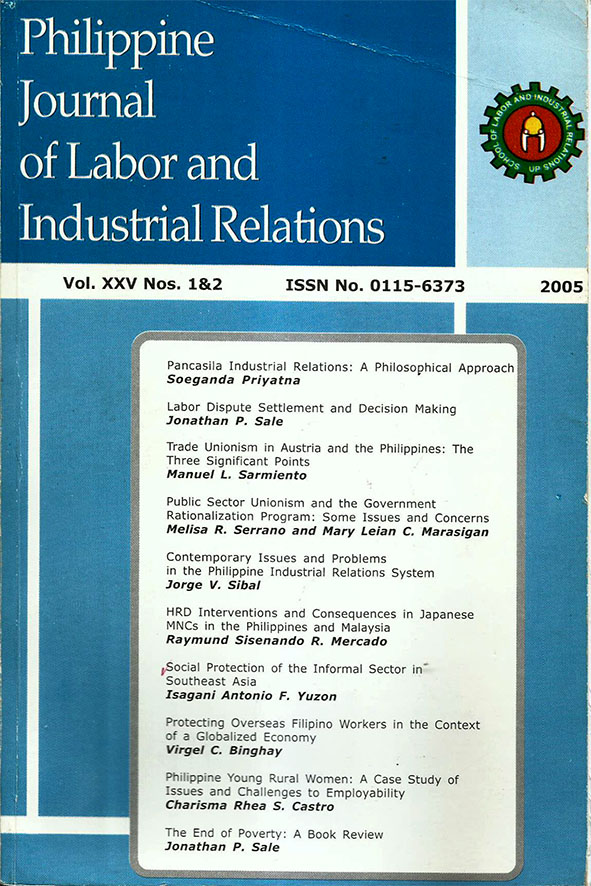Contemporary Issues and Problems in the Philippine Industrial Relations System
Abstract
The paper describes industrial relations as social relations of production and using this framework characterizes the Philippine IR system as predominantly paternalistic, hierarchical and unitary. Using statistics gathered from government sources, he discusses the state of trade unionism and collective bargaining in the country and the low compliance to labor standards which are directly related to the number of strikes among the organized labor sector. He recommends the need to curb declining trade union membership and militancy by calling on labor unions to align themselves with civil society, explore new mechanisms for labor empowerment and support corporate codes of conduct to promote self-regulation of labor standards compliance. He also urges a strong partnership among the IR actors with government and the private sector becoming more proactive to labor policy reforms and promotion of labor empowerment and social justice initiatives.
Published
2021-07-12
How to Cite
SIBAL, Jorge V..
Contemporary Issues and Problems in the Philippine Industrial Relations System.
Philippine Journal of Labor and Industrial Relations, [S.l.], v. 25, july 2021.
ISSN 0115-6373. Available at: <https://journals.upd.edu.ph/index.php/pjlir/article/view/7789>. Date accessed: 25 sep. 2025.
Section
Articles


